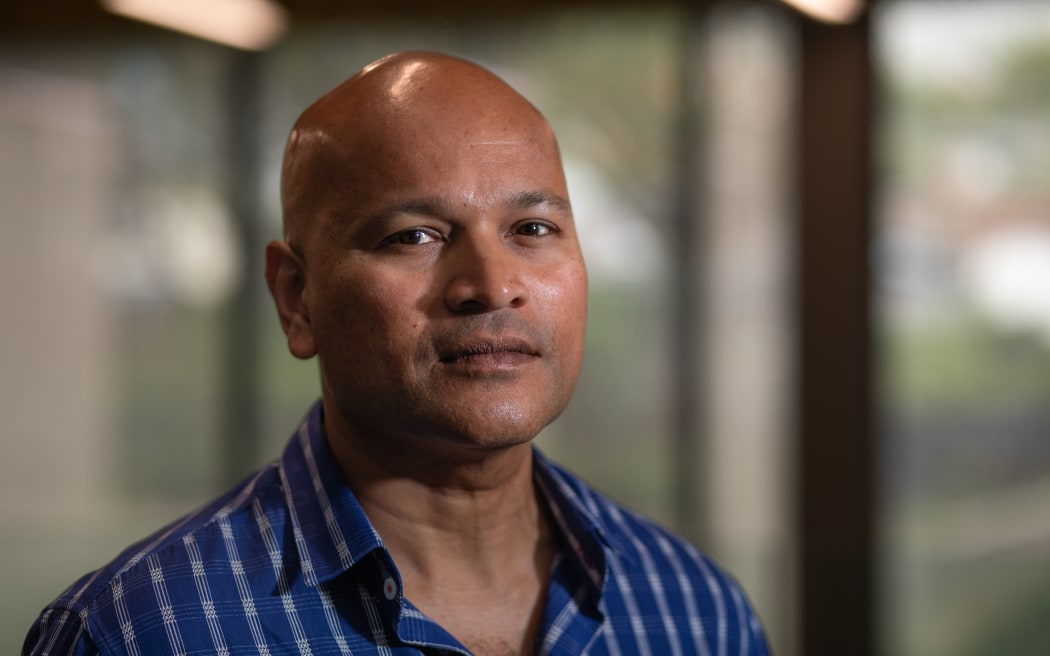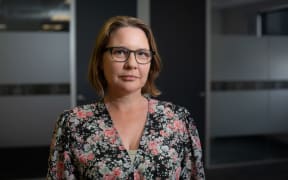
The number of mental health and addictions workers has not kept pace with the huge increase in people seeking such services, Dr Hiran Thabrew said. Photo: 123RF
New Zealand's shortage of psychiatrists means waiting lists are extending to more than a year to see a professional in private practice.
Meanwhile, in a public system overwhelmed with patients needing help one in five psychiatrist positions is vacant.
That creaking system, with some psychiatrists reporting high levels of burnout, led to the Royal Australian and New Zealand College of Psychiatrists expressing concern the government did not deliver on National's pre-election promise to fund more training positions.
But Minister for Mental Health Matt Doocey said he was working on a plan to fix the workforce shortage, and the promise of more training places would be met.
College chairperson Dr Hiran Thabrew practices in the public sector in Auckland and sees firsthand the effects of an under-pressure mental health and addiction service.
"Every night I'm on call I have to make decisions about who to admit and who not to admit to an inpatient unit, knowing that there's usually only one or two beds available because all the others are filled," Thabrew said.
"I also know that there are shortages on our roster, which means people have to pick up extra shifts or try to arrange cross cover in some manner."
The college was disappointed this year's Budget did not include funding for much-needed extra training places, but Thabrew said it was grateful the minister was engaging with members about the problem.
However, delaying an urgent fix to the shortage was making matters worse.
"This increase was not to boost the number of psychiatrists overall, but it was actually to help maintain it over the coming decade or two.
"We're an ageing workforce, with 20 percent of our workforce being over 65. People are retiring. People are burning out and leaving the public service because of current workforce shortages."
The number of mental health and addictions workers had not kept pace with the huge increase in people seeking such services, Thabrew said.
Psychiatrists were having to make tough calls about when they saw people or the length of time they accessed inpatient care, which led to other problems, so investment in the workforce was critical, he said.
"It's a worthwhile investment considering that mental health problems cost the country $12 billion a year, or 5 percent of GDP.
"What we're asking for in terms of the money to train more psychiatrists is a small drop in the ocean."
But it would make a big difference, he said.

Dr Hiran Thabrew says the number of mental health and addictions workers has not kept pace with the number of people seeking such services. Photo: RNZ / Cole Eastham-Farrelly
Professor emerita Dr Sarah Romans is a psychiatrist in private practice, where she said demand was too great to keep up with.
"I'm now in pre-retirement and not taking any more referrals, but at the height of the time when I was taking referrals from GPs my wait list was out to 15 months."
That was far longer than the six to eight weeks considered the maximum desired waiting time.
Romans said she was lucky that as she was in private practice so she could tell people she had a waiting list, and concentrate on properly working with the patients she could see.
However, psychiatrists in public practice did not have that luxury, she said. She felt sorry for them as they dealt with burnout.
Just last week Checkpoint reported how that issue led to Kāpiti Coast's only public sector psychiatrist quitting.
Romans said some people were forced wait many months to seek help after a referral from a GP.
"People do wait extraordinarily long times because they're desperate to see someone with that added knowledge and skill base, but when a very long wait in the private sector's coupled with having been turned down by the public sector patients are really upset and angry.
"Their families are often very worried about them and during that long wait time there may be a risk to their work acceptability. It's putting a huge strain on families."
There was no data available on how many psychiatrists were in private practice, which was a big gap, Romans said.
Doocey said he was still committed to increasing psychiatry training places "by around a third".
"We know we have around 37 places for psychiatry registrars at the moment. I want to increase that by a third, and also we pledged that we would increase the number of clinical psychology internship placements."
Checkpoint asked Doocey when that would happen.
He said: "What I'm working with at the moment is to develop New Zealand's first mental health and addiction workforce plan. It beggars belief that we didn't have a specific mental health and addiction workforce plan."
It was something the auditor-general had called for.
"What I'm looking to plan out is how we can support our mental health professionals, like psychiatry, to increase retention, how we support better skilled migration, and ultimately how we train more of our local workforce," Doocey said.
Doocey said he wanted to decrease vacancy rates, and keep workers who now felt like they had no choice but to head overseas.
"What we want to work with is the people who are not leaving necessarily by choice, but the ones who feel they have no choice but to go because of things like remuneration rates and, of course, the burnout factor, where they're covering too many vacant roles."
Doocey said he had asked officials to develop the workforce plan at speed.





